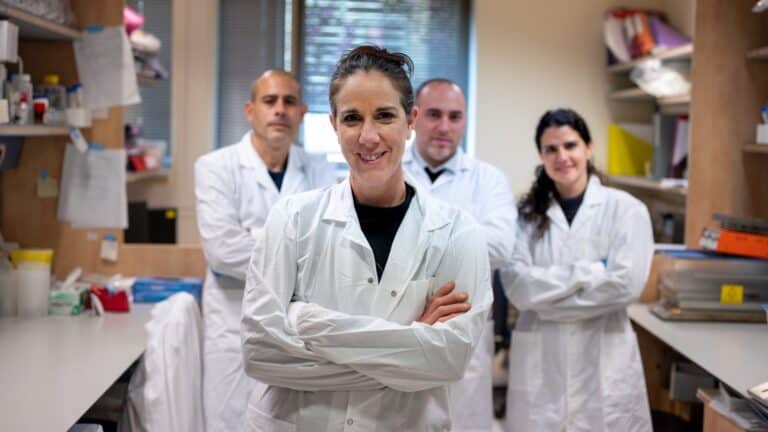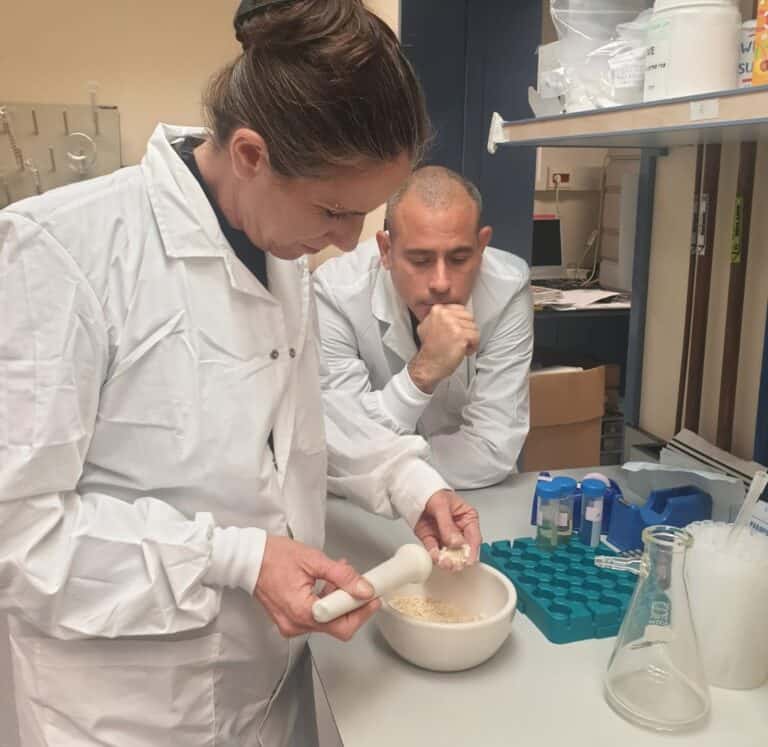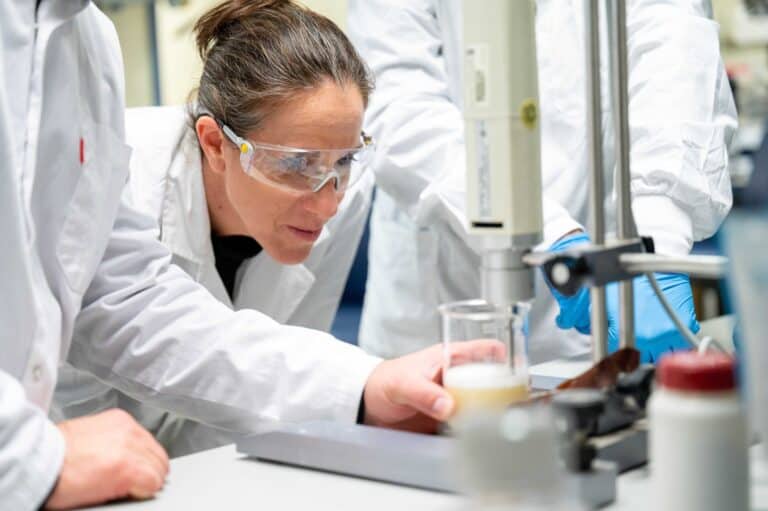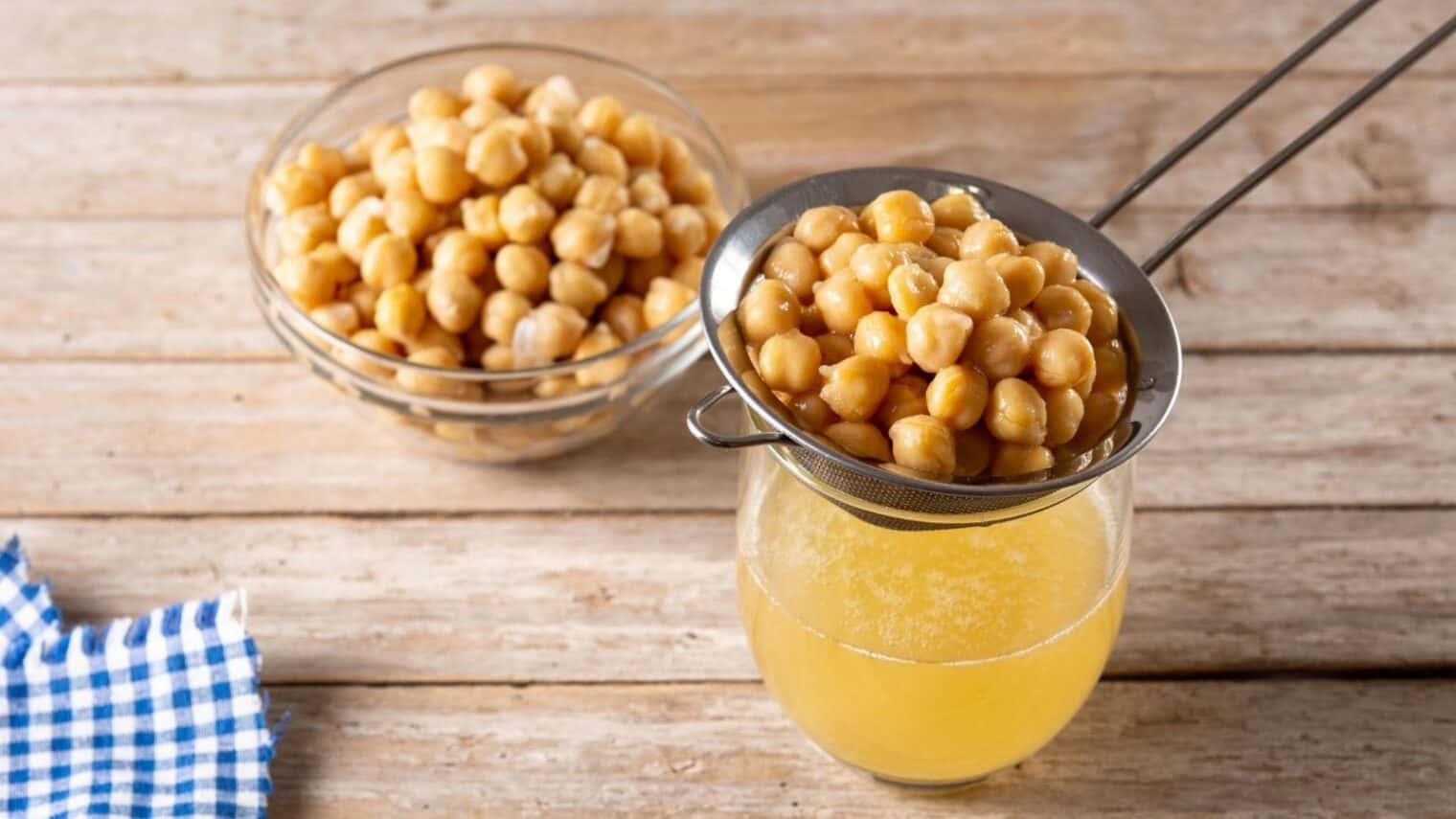You know that thick liquid you drain from cans of chickpeas and other beans and legumes?
It’s called aquafaba, and surprisingly it’s not a waste product at all. Aquafaba is an inexpensive, versatile, plant-based and environmentally friendly egg substitute.
But even if you save aquafaba at home, an awful lot is poured down the drain by bean canneries. It’s not economically viable to collect and sell this side stream to industrial bakeries.
A couple from Tel Aviv is out to change that with Fabumin, a powdered aquafaba product made from rescued legume cannery cooking water.
Fabumin binds, emulsifies and foams when used in baking and cooking, behaving exactly the same as eggs in products such as breads, pastries, cakes, cookies, crackers, mayonnaise, spreads, meatballs, hamburgers and snacks.
A kilo of Fabumin replaces 130 eggs and will be priced competitively with powdered eggs and especially powdered albumin, aka egg white.
It all started at home
Fabumin was founded in 2019 by Adi Lengel (CTO) and Adi Yehezkeli (CEO), partners in real life with two kids and two dogs.
The two Adis are very health conscious, baking their own bread and making their own silan syrup from fresh dates.
“Adi is an amateur food engineer and he started to make plant-based cheese for our family,” relates Yehezkeli.
“It became a business, Human Nature. We made the best vegan cottage cheese in Israel.”

When they sold their IP to a European retailer, they were ready for their next venture.
Lengel and Yehezkeli were using aquafaba to replace eggs in their home kitchen, but discovered that the liquid is difficult to work with on an industrial level and has a short shelf life. So they experimented with drying it.
“After two years of R&D, we succeeded in making powdered aquafaba. This is a product that is mostly water and the IP lies in the drying process,” says Yehezkeli.
“We made it for our own use and didn’t plan for it to become a business, but just like Human Nature, that’s what happened.” That company now has four employees.

Yehezkeli acknowledges that in a market with many types of egg replacers, powdered aquafaba is already available. “But it is very expensive because evaporating water is energy-intensive. We aim for our egg replacer to be the cheapest in the market.”
Waste treatment
Fabumin is being positioned as a waste treatment company, Yehezkeli tells ISRAEL21c.
“Aquafaba is wastewater, the byproduct of cooking any kind of bean or legume. We’re promoting the circular economy by turning this endless supply of waste into a functional raw material for the food industry, for baking and even cultivated meat.”
And not only the food industry. Aquafaba has many potential uses as a natural binder, such as in cosmetics.
“Our vision is to fulfill this huge potential. With a low production cost, we can supply this magical raw material at a competitive price,” she says.
Fabumin plans to place its technology in legume canneries.
“The system hooks into the boiling pot and evaporates the water, then returns the condensed water to the factory to use again,” explains Yehezkeli.
“We can reduce factory water bills 80 percent because we keep using the water over again.”
She also points out that the production of just one egg requires 30 liters of drinking water and emits 230 grams of greenhouse gases. The more eggs Fabumin replaces, the more environmental damage it can prevent, says Yehezkeli.
Beta site
With a grant from the Israel Innovation Authority, Fabumin built a semi-industrial pilot plant near Kibbutz Maabarot that can produce 10 kilos of aquafaba powder per day.
Until the war that began on October 7, Yehezkeli had hoped by the end of this year to build a beta site facility in Israel that could produce a ton of egg substitute per day, and to enter the European market with a 5-ton facility in 2024.
However, due to the security situation some foreign investors backed out, delaying the planned beta site. In addition, COO Adi Lengel was called up to the reserves.
Nevertheless, Yehezkeli says that with “massive help from Israeli and Jewish investors,” and Israeli ecosystem support for startups through initiatives such as SafeDome and a special wartime budget from the Israel Innovation Authority, the company is moving ahead with its R&D.
“Everything is very complicated now, but we are shipping samples to potential customers. Even in this terrible situation, it’s very important for us to continue working, building relationships with customers and honoring our commitment to our investors.”

Last year, Israel-based innovation and promotion hub Tech It Forward recommended Yehezkeli for the international Cartier Women’s Initiative (CWI) fellowship program, which empowers female impact entrepreneurs to create market-based solutions to global challenges.
She was selected as one of 32 fellows for 2023, entitling her to financial, social and human capital support in scaling up Fabumin.
“We are thrilled that Adi Yehezkeli and her team at Fabumin have been recognized for their innovative plant-based egg substitute that performs exactly like egg protein in food products, while also saving the environment and enhancing animal welfare,” said Jessica Rosner, cofounder of Tech It Forward.
“When we met Adi, we immediately identified a groundbreaking technology, a true Israeli gem and an entrepreneur with tremendous potential.”
Fabumin has pledged to give 3% of its revenue to Freedom Farm, an Israeli sanctuary for livestock rescued from the food industry.
For more information, click here.

















